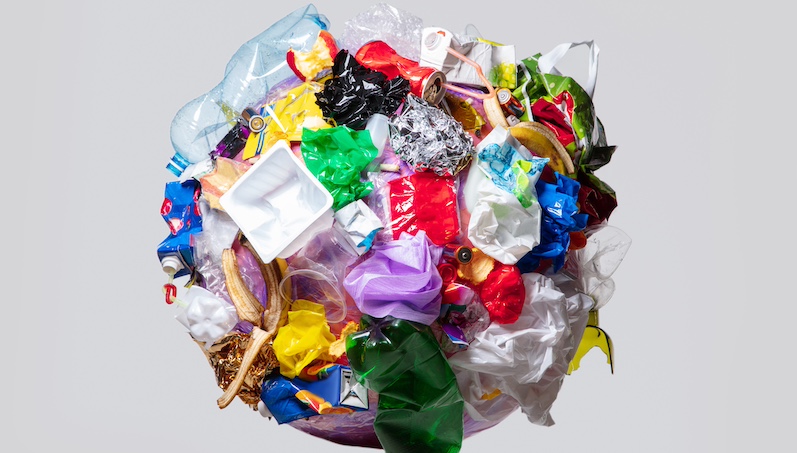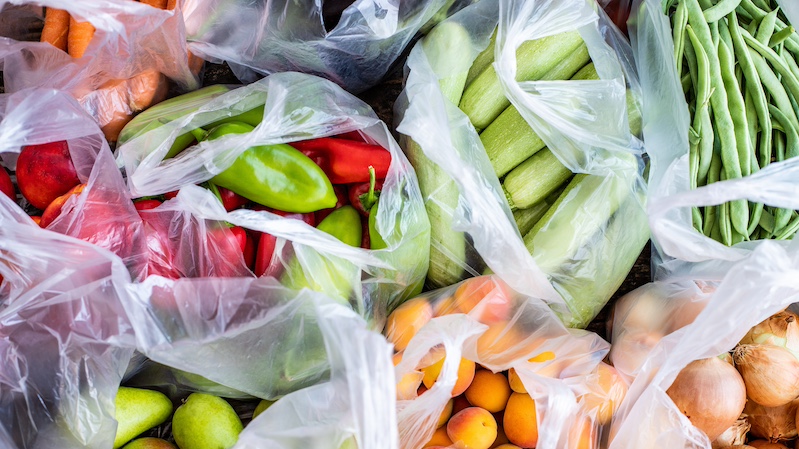Not waste until it’s wasted: what to do with 10 hard-to-recycle materials
Did you know that silver jewellery can be made from X-rays? Or your old blankets, sheets and towels can give sweet fluffy animals in need a cosy, warm bed?
On campus, our VU RISE initiative focuses on innovative research projects to help build resilient communities and a healthier future – such as the sustainable packaging solutions project, which aims to produce more with less, and create less waste.
Change can happen on a smaller scale too, and that might just be you. We can always improve our own recycling practices at home: what you might deem rubbish might have a whole new life in it, so don’t waste your waste!
Read through this useful guide of where to send everyday materials you might be tempted to throw out before hitting the foot pedal on your kitchen bin.

1. How do I get rid of my old blankets & bedding?
Did you know that your blankets, sheets and towels can be repurposed to make more cosy and warm beds for animals in need? So, don’t bin them! Organisations such as the RSPCA, The Lost Dogs Home and most likely your local animal shelter (just make sure to enquire first before dropping off) are always in need of soft materials for animal bedding.
Do take note that due to health guidelines they often aren’t able to accept doonas or pillows (ie. any bedding filled with feathers), so make sure you chat to the person organising donations if you’ve got questions.

2. Do I throw out my coffee pods? I drink three cups a day!!
While Stanley cups are taking the world by storm, those home coffees can also add up to your personal waste footprint. To make sure you “leave no crumbs”, here are some options.
Nespresso run a recycling scheme for their pods through various collection points around the country – head here for more info.
Or, if your local council accepts compost in green waste bins, you can buy compostable coffee pods from brands such as Urban Brew, and then pop the empty capsules in your green bin (after removing the foil lid).

3. What should I do with my bits of foil?
Have you been binning those foil coffee capsule lids every morning? That was not very mindful (or demure). Why? Because they are recyclable – as long as you have a lot of them!
Clean off any food from foil bits and keep them, combining them until you have a ball the size of your fist as a minimum. You can then recycle foil balls in your yellow household recycling bin.

4. How do I e-fficiently dispose of all of my e-waste?
Be honest: are you a broken charger hoarder? Or just not sure how to recycle them? Well, did you know that they can be easily dropped off on your next stationery run to Officeworks?
Their e-waste collection scheme ensures safe recycling of audio/tech accessories, ink/toner cartridges, and data storage devices, with a few exceptions listed on their page – and you can throw your old pens and markers in there too. Check the link above for a full list of accepted materials.

5. Now that I can't take it to Woolies, what do I do with soft plastic?
Ever wondered what happens to soft plastic bags like bread bags, cereal liners, and frozen food wrappers? They can't go in your regular bin and really aren't great for reuse either. Plus, sadly the REDcycle scheme which was active at Coles and Woolworths has folded.
But gladly, Recycle Smart makes soft plastics recycling easy. You can book a pickup through their website or app, pack your recyclables in a 40x40x20cm bag, and a local driver will collect them. The soft plastics are shredded, processed through pyrolysis into feedstock oil, and refined into resin for food-grade packaging. A win all-round.

6. Do I just pour old paint down the kitchen sink?
Redecorating your room for a fresh vibe on your walls? Or did you have your own lockdown artisté moment in the garage? Now, years later, what do you do with those dusty, forgotten cans piling up in there?
Well lucky you asked, we've got the answers. Old pots of paint can’t be poured down the sink or thrown into the rubbish bin, but there is a safe disposal option: Paintback.
Committed to researching new ways of repurposing unwanted paint materials, the organisation has collection points where you can drop off old cans (up to 100L per visit). They then recycle the paint by utilising it as an alternative energy source. See their list of collection sites.

7. I care about my dental hygiene. But can I recycle my toothpaste & brush?
Great dental hygiene is fantastic, and don't forget to floss! But good question on those tricky toothpaste tubes and toothbrushes.
The good news is you can recycle these items for free with TerraCycle. Start a collection at home, register on their website, and when your box is full you can ship it off and TerraCycle will turn them into reusable materials.
Please note: the program is full for 2024 and will resume in 2025.

8. Should I chuck out my old pill packets?
Storing or disposing expired medication incorrectly can be a hazard for children or pets, as well as the environment. But did you know you can take unwanted medicines to your local pharmacy?
The Return Unwanted Medicines project runs nationwide. All you need to do is take the silver blister strips (without the cardboard packaging) to your pharmacist, where they will safely dispose of them.

9. My old mattress is taking up so much space – help me dispose of it!
In your 20s but feeling like your back’s in its 70s? If you’re losing sleep because your back and mattress are constantly brawling, it might be time for an upgrade. And don’t worry – your old mattress doesn’t have to end up in landfill, but you will free up space in your shed.
Head to Soft Landing, a social enterprise that recycles components of end-of-life mattresses and bases to make up roofing, carpet underlay or mulch. They also create jobs and training for those experiencing barriers to employment.

10. I want to forget about my broken ankle – how do I ditch my x-rays?
There's a quote that says, "Art is the residue of pain transformed into beauty." Now, thanks to Siltech PMR and Ecocycle, you can recycle old X-rays and turn them into beautiful accessories.
By placing them in designated collection bins, the silver within is recovered for uses like utensil plating, soldering, film manufacturing, and jewellery. So, you might end up wearing art created from someone's old broken bone scan!

Knew all this already?
Woohoo, you’re a recycling whiz – test yourself even further by taking our true or false Recycling Quiz!